Environment
-
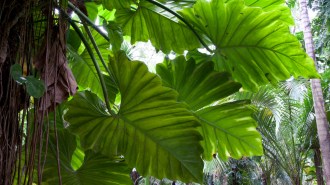 Climate
ClimateSome leaves in tropical forests may be getting too hot for photosynthesis
Climate change may be forcing some tropical leaves to stop photosynthesis and die. It’s still unclear what effect this will have on entire forests.
By Nikk Ogasa -
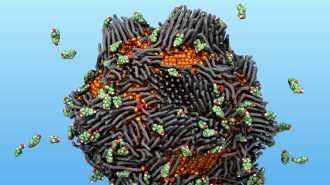 Chemistry
ChemistryMagnetic ‘rusty’ nanoparticles pull estrogen out of water
Iron oxide particles adorned with “sticky” molecules trap estrogen in water, possibly limiting the hormone’s harmful effects on aquatic life.
By Skyler Ware -
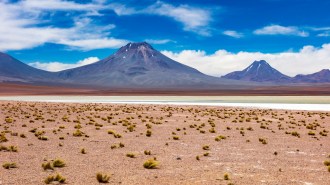 Environment
EnvironmentThe most intense sunlight on Earth can be found in the Atacama Desert
On the Chilean Altiplano plateau, every square meter of the ground receives, on average, more solar power than Mount Everest and occasionally almost as much as Venus.
-
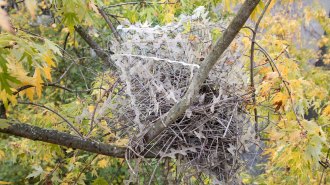 Animals
AnimalsIn a ‘perfect comeback,’ some birds use antibird spikes to build their nests
The spikes were meant to keep birds away. But five corvid nests in Europe use the bird-deterrents as structural support and to ward off predators.
-
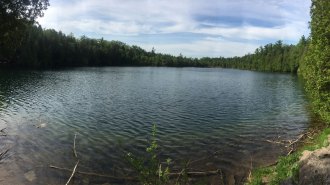 Climate
ClimateCanada’s Crawford Lake could mark the beginning of the Anthropocene
The mud of a Canadian lake holds an extremely precise record of humans’ influence on Earth. But the Anthropocene isn’t an official geologic epoch yet.
-
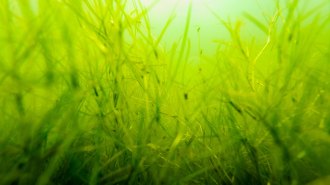 Ecosystems
EcosystemsThis seagrass is taking over the Chesapeake Bay. That’s good and bad news
Higher water temperatures are wiping out eelgrass in the Chesapeake Bay and weedy widgeongrass is expanding. Here’s why that seagrass change matters.
By John Carey -
 Chemistry
ChemistryTear-resistant rubbery materials could pave the way for tougher tires
Adding easy-to-break molecular connectors surprisingly makes materials harder to tear and could one day reduce microplastic pollution from car tires.
By Skyler Ware -
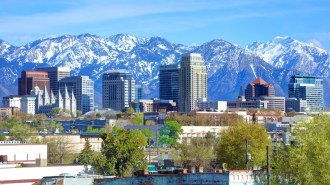 Environment
EnvironmentDust from a shrinking Great Salt Lake may be accelerating Utah’s snowmelt
About a quarter of the record-breaking, snow-melting dust on the Wasatch Mountains in 2022 may have come from exposed lakebed at Great Salt Lake.
-
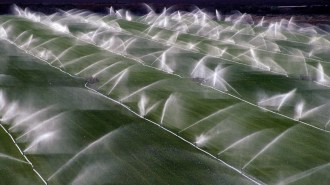 Earth
EarthIrrigation may be shifting Earth’s rotational axis
Computer simulations suggest that from 1993 to 2010 irrigation alone could have nudged the North Pole by about 78 centimeters.
By Sid Perkins -
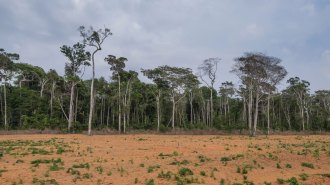 Ecosystems
EcosystemsThe Amazon might not have a ‘tipping point.’ But it’s still in trouble
Scientists race to foretell the fate of the vast forest facing deforestation and climate change.
By Nikk Ogasa -
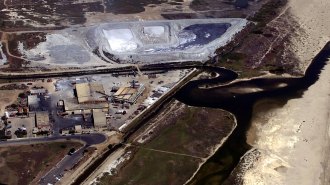 Environment
EnvironmentRising groundwater threatens to spread toxic pollution on U.S. coastlines
Sea level rise is pushing groundwater into shallower layers of earth, threatening to spread hazardous chemicals from contaminated soils.
By Nikk Ogasa -
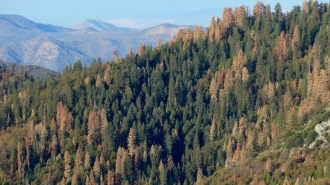 Environment
EnvironmentSurviving a drought may help forests weather future dry spells
Climate change is making droughts more intense and frequent, but conifer forests have a trick up their sleeve, airplane and satellite data show.